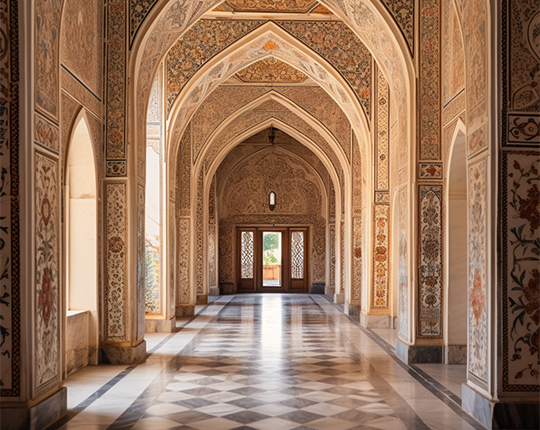Political Participation and Unity in Maharaja Ranjit Singh’s Realm
Maharaja Ranjit Singh’s reign marked a period of significant political and social transformation in the Punjab region.
His rule was characterized by religious tolerance, inclusivity, and a willingness to engage with the Sikh diaspora. This led to increased political participation of the diaspora in the affairs of the Sikh Empire.
Diaspora Representation in the Darbar
Maharaja Ranjit Singh established the Darbar, a council of advisors, which included representatives from various regions, including the diaspora.
Diaspora members were appointed to high-ranking positions in the Darbar, allowing them to influence policy and decision-making.
Notable examples include Diwan Sawan Mal, a prominent banker from Kabul, and Bhai Ram Singh, a religious leader from Sindh.

Diaspora Involvement in Military and Governance
Diaspora members played a significant role in the Sikh Empire’s military campaigns and administrative affairs.
Many diaspora Sikhs joined the Sikh army, rising to high ranks and contributing to the empire’s military success.
Diaspora members also held important administrative positions, such as governors and tax collectors, demonstrating their trust and loyalty to the Maharaja.
Diaspora Contributions to Economic and Cultural Development
Diaspora Sikhs actively participated in the economic development of the Sikh Empire, engaging in trade, banking, and agriculture.
They brought new ideas, skills, and resources to the empire, contributing to its prosperity and growth.
Diaspora Sikhs also played a vital role in preserving and promoting Sikh culture and heritage, establishing gurdwaras and supporting religious and cultural activities.

Communities within the diaspora actively participated in political dialogues.
Their voices were heard and considered, leading to policies that accommodated the interests of all, regardless of religious affiliations.
The political participation of the diaspora during Maharaja Ranjit Singh’s time was a testament to his inclusive and forward-looking approach to governance.
Diaspora Sikhs were actively involved in the Darbar, military, administration, and economic and cultural development of the empire.
Their contributions helped strengthen the Sikh Empire and foster a sense of unity and belonging among Sikhs worldwide.
